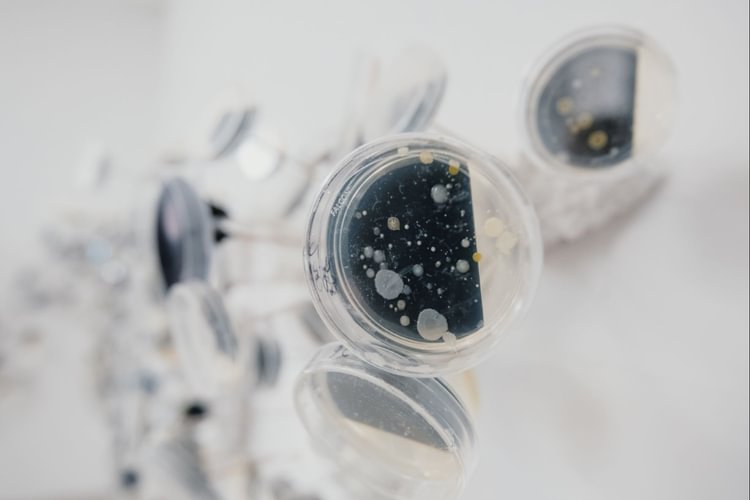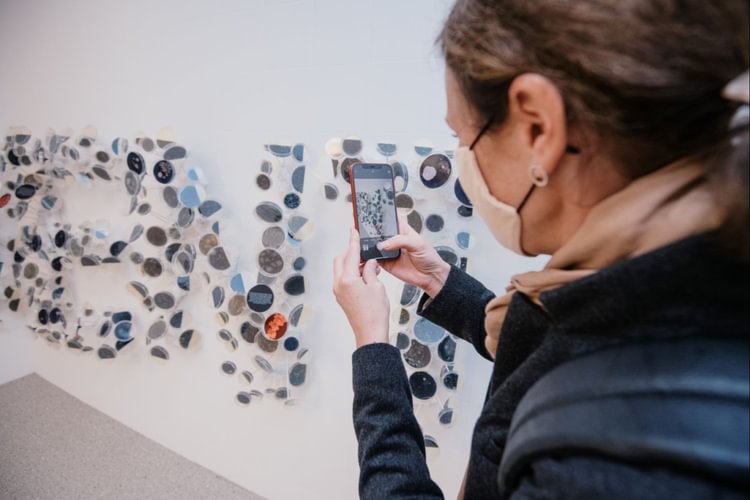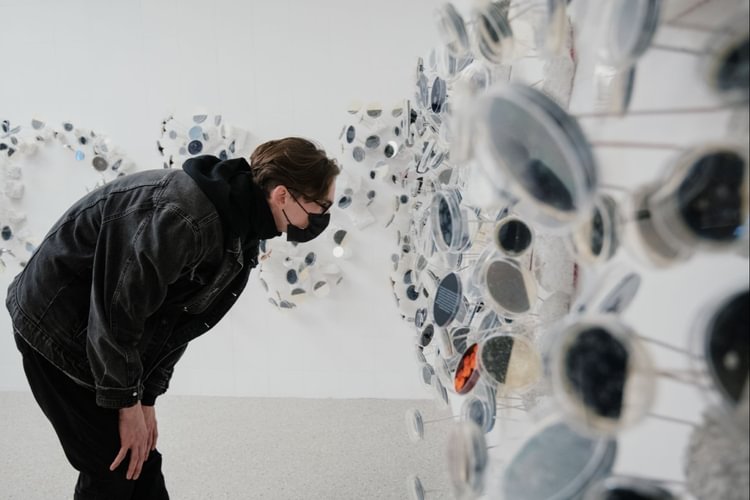Painting with Microorganisms: New Creative Installation in Vilnius Blends Science and Art
Vilnius, Lithuania, unveiled an original project where live microorganisms in Petri dishes spell out the word “MOMENT.” The synthetic biology-inspired installation was designed by promising Lithuanian talents and future life sciences researchers Vilnius-Lithuania iGEM team together with a recognized artist Jolita Vaitkutė to help the public visualize the role of life sciences in everyday life.
Up-and-coming Lithuanian scientists, based in Vilnius, the capital of Lithuania, have come up with an idea to teach the general public about synthetic biology by using art. The team has collaborated with a renowned artist to unveil an art installation, titled “MicroMoment,” that spells out the word “MOMENT” with tightly sealed Petri dishes (dishes used for keeping bacteriological cultures) containing microorganism colonies.
The word “MOMENT” captures an instant where the invisible side of everyday life—microorganisms—is laid out in plain sight. The artist of the installation, Jolita Vaitkutė, has been widely known for creating art from unexpected materials—one of her more memorable projects involves a food-based installation depicting famous football rivals Christiano Ronaldo and Lionel Messi. Therefore, the project incorporating microorganisms was right up her alley.
“I’ve always been fascinated with the idea of painting with microorganisms because of their unpredictability. Since we live surrounded by colorful microorganisms, I believe it necessary to talk about it to dissipate common fears,” said Vaitkutė. “I used to have a Petri dish where I would observe the ever-changing processes. The collaboration with the scientific team has enabled me to gain more in-depth recognition on the biological side of the world.”
Since the year-long global crisis has highlighted the importance of science more than ever—from groundbreaking work in coronavirus testing to international cooperation on creating a modern vaccine—future Lithuanian scientists decided to use the project to enlighten the public about the scientific novelties, and, especially, the intricate world of synthetic biology.
The exclusive collaboration with the artist has been initially proposed by the Vilnius-Lithuania iGEM (the International Genetically Engineered Machine) 2021 team. While last year’s team made the headlines by winning the grand prize at the iGEM 2020 Competition, the 2021 team, despite working in a laboratory, is focusing on public engagement and education. Since the iGEM Competition promotes discussions with the community on interdisciplinary subjects, one of the current projects of the team is the event cycle “Sense Lab,” which is set to make science more approachable to the community.
“Even though art and science may seem like incompatible disciplines, we wanted to show everyone that is not the case,” added Greta Zaburaitė, Head of Vilnius-Lithuania iGEM team and one of the initiators of the project. “The event cycle is interconnected by human sensations to be evoked by various triggers. Therefore, the installation complements the sensation of sight in a way that it is visually exciting and unique but still conveys ties with life sciences.”
“People, who see the world in a different light—scientists, creators—and share their provoking, unconventional ideas, make Vilnius a place where different communities can get together and collaborate on eye-opening projects,” commented Inga Romanovskienė, Director at Go Vilnius, the official tourism and business development agency of the City of Vilnius.
Vilnius’ tendency to merge life sciences and artistic explorations mark significant steps taken by Vilnius towards involving the public in biotechnologies. It has also been prompted by the ambitious goals of Lithuania to double the contribution of life sciences to the country’s gross domestic product (GDP) by 2030.
As a booming industry, the Lithuanian biotechnology sector reached 87% growth during 2020, experiencing the fastest growth in the past decade. Given that the majority of biotechnology companies operate in Vilnius and have produced a number of pandemic solutions, such as the manufacture of vaccine reagents or testing kits, the capital has created a sturdy ecosystem to facilitate future life sciences breakthroughs.



